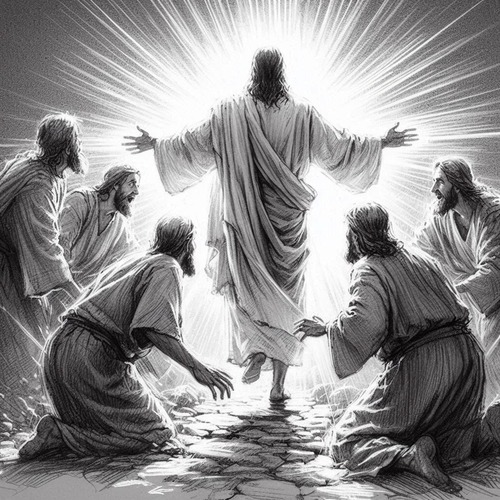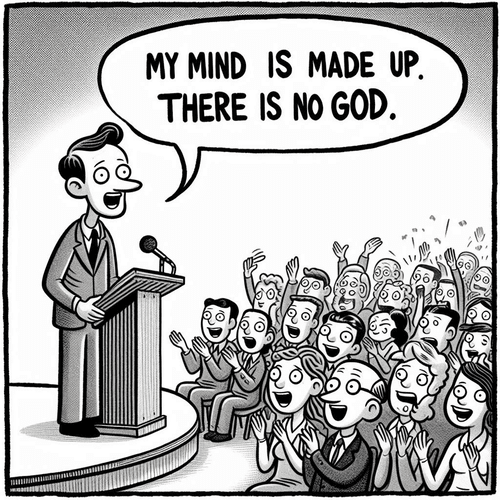The Truth of the Resurrection: A Three-Fold Philosophical Test
Testing the Truth Claims of the Resurrection
The resurrection of Jesus remains one of the central and most critically examined events of the Christian faith. Evaluating its truth claims requires a comprehensive, multi-faceted approach. This post employs three powerful philosophical criteria—INTERNAL COHERENCE, EXTERNAL CORRESPONDENCE, and FUNCTIONAL ADEQUACY—to rigorously assess the validity of the resurrection. By examining this pivotal event through these philosophical lenses, we can gain a deeper understanding of its significance, authenticity, and transformative power. Let's evaluate the resurrection in light of these criteria in comprehensive detail, bolstered by scriptural references, historical evidence, and insights from scholars.
Internal Coherence Internal coherence evaluates whether the resurrection narrative maintains logical consistency within itself and the broader context of Christian theology and doctrine.
- Consistency of the Narrative: The accounts of Jesus' resurrection are documented across the New Testament Gospels (Matthew, Mark, Luke, John) as well as the apostolic letters, notably by Paul. Despite variations in supplementary details, these independent accounts remarkably converge on the core elements:
- Empty Tomb: All four Gospels testify that Jesus' tomb was discovered empty by his women followers on the first day of the week after his crucifixion (Matthew 28:1-10, Mark 16:1-8, Luke 24:1-12, John 20:1-10).
- Post-Resurrection Appearances: The Gospels and Paul's writings catalogue numerous appearances of the risen Christ to individuals, small groups, and larger gatherings of his followers over a period of 40 days, providing eyewitness validation (Matthew 28:16-20, Luke 24:13-35, John 20:19-29, 1 Corinthians 15:3-8).
- Transformation of Disciples: The narrative consistently depicts the radical transformation of Jesus' once fearful and doubting disciples into bold proclaimers of the resurrection, even in the face of intense persecution—a psychological shift only explicable by their wholehearted conviction in the truth they encountered (Acts 2:14-41, Acts 4:1-22).
- Theological Coherence
Not only is the resurrection coherent within its own narrative framework, it aligns seamlessly with overarching Christian theology. It fulfils longstanding Old Testament prophecies foretelling the coming of the Messiah and the necessity of his sacrificial death and resurrection (Psalm 16:10, Isaiah 53:10-11, Hosea 6:2). It validates Jesus' own predictions of his death and vindication through rising again (Matthew 16:21, John 2:19-22, John 10:17-18). Moreover, the resurrection stands as the indispensable cornerstone for foundational Christian doctrines such as the Atonement (Romans 4:25), the conquest of sin and death (1 Corinthians 15:54-57), the promised resurrection of believers (1 Thessalonians 4:13-18), and the assurance of eternal life (John 11:25-26).
External Correspondence External correspondence scrutinizes how well the resurrection accounts align with verifiable historical facts, evidence, and credible testimonies outside of Scripture itself.
- Historical Evidence
- Eyewitness Testimonies: The New Testament meticulously documents multiple eyewitness accounts from those who testified to encountering the risen Jesus (1 Corinthians 15:3-8, Luke 24:13-35, John 20:24-29, Acts 1:1-3). These testimonies carried tremendous weight, as many were recorded while the eyewitnesses were still alive, subjecting their claims to cross-examination and corroboration.
- Empty Tomb: Even among sceptical scholars, the reality of Jesus' tomb being found empty is a widely accepted fact that lacks any naturalistic explanation. The details provided—of women being the first to discover the vacant tomb (Matthew 28:1-10)—lends significant credibility, as women's testimonies were devalued in that patriarchal culture, making it an unlikely fabrication.
- Transformed Disciples: The complete transformation of Jesus' once-doubting followers into fearless evangelists for the resurrection message stands as a powerful testament. Historical records confirm that many apostles willingly faced persecution, torture, and even martyrdom for their unwavering belief in the risen Christ—something they would have been highly unlikely to endure for a purposefully invented myth or deception.
- Early Preaching of the Resurrection: The resurrection was the unapologetic core of the earliest Christian kerygma—or preaching and teaching—as evidenced by the apostolic sermons in Acts and the embryonic creeds and hymns contained within Scripture (Acts 2:22-36, Acts 3:13-15, 1 Corinthians 15:3-7, Philippians 2:5-11). This unprecedented shift of Jewish believers worshipping on Sunday instead of the Sabbath highlights the seismic impact of their conviction in Jesus' resurrection. The rapid expansion of the early and starkly Jewish-centric Church in a remarkably brief period can only be adequately explained by their sincere belief in and witness to the risen Messiah, who they revered as God incarnate despite its conflict with monotheistic Jewish teaching.
- Secular Accounts: While not recording the event itself, several non-Christian historians and scholars provide extra-biblical corroboration for the historical reality of Jesus' life, execution under Pontius Pilate, the devotion of his followers, and their widespread proclamation of his bodily resurrection shortly after his death (Josephus, Tacitus, Pliny the Younger, Celsus).
Functional Adequacy Beyond philosophical scrutiny and historical analysis, the resurrection's authenticity is powerfully validated by its transformative functional impact over the centuries.
- Personal Transformation: The resurrection is not an abstract theory but a dynamically transformative reality for believers across centuries and cultures. Countless transformed lives testify to the resurrection's regenerative power, providing deliverance from destructive patterns, overcoming grief and trauma, infusing purpose, and inspiring lives of service, ethics, and compassion (2 Corinthians 5:17, Galatians 2:20).
- Societal & Cultural Impact: As a direct result of the resurrection truth, Christian ethics and values have profoundly shaped history and civilizations. The elevation of human dignity, advocacy for the marginalized, abolition movements, advances in education, healthcare, courts of law and more all trace their motivation to the resurrection belief. Entire nations embraced Christianity based on the conviction of missionaries and the regenerative impact they had witnessed, fuelling cultural and moral renaissance.
- Existential Answers & Assurance: At its core, the resurrection provides satisfying and hope-filled answers to the fundamental existential realities all humans face—the universality of suffering, the inevitability of death, and the longing for transcendent meaning and purpose. The resurrection affirms the reality of sin yet offers God's solution of redemption while also providing the believer confidence to face every adversity. It assures us death is not the end but merely a transition to eternal life after bodily resurrection, removing the fear of mortality (1 Corinthians 15:54-57, John 11:25-26).
- Worldview Cohesion: The resurrection serves as the lynchpin uniting the comprehensive Christian worldview regarding the nature of God, creation, humanity, morality, the problem of evil, and the promise of restoration and eternal life. It harmonizes seemingly paradoxical truths—Jesus as fully God and fully man, a wrathful yet merciful Creator, the tragic consequences of sin alongside triumphant grace. As the culmination of God's redemptive plan, the resurrection provides cohesive meaning to the overarching biblical narrative.
Conclusion: By evaluating the truth claims of the resurrection through the philosophical lenses of internal coherence, external correspondence, and functional adequacy, an undeniably compelling case emerges. The harmonious internal testimony, the historic external validation, and the transformative functional impact together substantiate the resurrection as not only a credible occurrence but one of unparalleled magnitude and eternal significance in human history. No amount of scepticism can dismantle its multi-faceted authentication; the only reasonable stance is to embrace the resurrection's revolutionary reality and allow its profound implications to take root.
Related Reads
Editor's Pick

Christian Obedience: God’s Empowerment or an Act of Our Will?
Every Christian knows the struggle. You’re fighting a besetting sin—again. You’ve resolved to do better—again. And you’re wondering: Should I [...]

The Throne-Room Vision: Who Did Isaiah See?
The scene is unforgettable: Isaiah stands in the temple, and suddenly the veil between heaven and earth tears open. He [...]

The Angel of the Lord: Can We Be Certain It Was Christ All Along?
Throughout the Old Testament, a mysterious figure appears: the Angel of the LORD. He speaks as God, bears God’s name, [...]
SUPPORT US:
Feel the Holy Spirit's gentle nudge to partner with us?
Donate Online:
Account Name: TRUTHS TO DIE FOR FOUNDATION
Account Number: 10243565459
Bank IFSC: IDFB0043391
Bank Name: IDFC FIRST BANK






